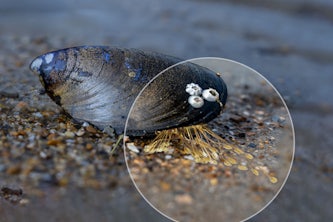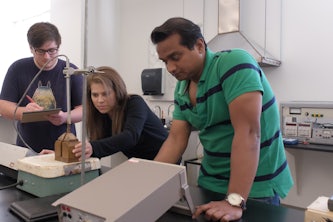New lead testing method could reveal higher levels in water
Daniel E. Giammar, the Walter E. Browne Professor of Environmental Engineering, weighs in on testing water for lead

ST. LOUIS (AP) — For years, testing of the tap water in an upscale Detroit suburb showed the city was in the clear. Then residents got a notice seemingly out of the blue: Their water could be contaminated with elevated levels of lead.
The city of Royal Oak had not made drastic changes to its water. It was simply using a new testing method that showed lead levels high enough that the utility was legally required to inform residents about the problem.
“We wanted to start a family, so hearing about lead in our drinking water was a little daunting,” said Nicole Obarto, who moved to Royal Oak with her husband in 2017.
In coming years, communities around the country could be in store for similarly unsettling news as U.S. officials consider adopting a more rigorous sampling method for lead in water. What happened in Royal Oak in 2019 offers a preview.
After the Flint water crisis, Michigan passed the country’s most aggressive lead measures, including more stringent testing of water. When using methods similar to what is currently required by the Environmental Protection Agency, testing of 170 systems in Michigan with lead lines resulted in 11 samples that exceeded the federal lead level requiring corrective action. When using another method like the one the EPA is reviewing and could soon mandate nationally, the figure doubled to 22.
With an even more thorough testing method Michigan adopted, it climbed to 31.
Other states are likely to see more elevated lead results as well under new testing; lead pipes still deliver water to millions of homes and businesses, a relic of the country’s outdated infrastructure.
“We should expect to see a very large number of utilities that are in compliance with the current rule no longer being in compliance,” said Daniel E. Giammar, an environmental engineering expert at Washington University in St. Louis.
Read the full story here.



